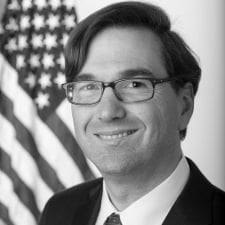Jason Furman is the Aetna Professor of the Practice of Economic Policy jointly at Harvard Kennedy School and the Department of Economics at Harvard University. Furman engages in public policy through research, writing and teaching in a wide range of areas including U.S. and international macroeconomics, fiscal policy, labor markets and competition policy. Previously, Furman served eight years as a top economic adviser to President Obama, including serving as the 28th Chairman of the Council of Economic Advisers from August 2013 to January 2017, acting as both President Obama’s chief economist and a member of the Cabinet. In addition to articles in scholarly journals and periodicals, Furman is a regular contributor to the Wall Street Journal and Project Syndicate and the editor of two books on economic policy. Furman holds a Ph.D. in economics from Harvard University.
Advisory Council, Author
Jason Furman
Professor of the Practice of Economic Policy, Harvard University; Senior Counselor, The Hamilton Project

Related
Forum
May 1, 2023
Powering a Clean Energy Future
Webinar
June 13, 2022
Tackling International Tax
Forum
April 29, 2022
Recession Remedies: Lessons Learned from the US Economic Policy Response to COVID-19
Papers
April 27, 2022
Lessons Learned from the Breadth of Economic Policies during the Pandemic
Forum
January 28, 2020
Tackling the Tax Code: Efficient and Equitable Ways to Raise Revenue
Policy Proposals
January 28, 2020
How to Increase Growth While Raising Revenue: Reforming the Corporate Tax Code
Policy Books
January 28, 2020
Tackling the Tax Code: Efficient and Equitable Ways to Raise Revenue
Policy Proposals
May 16, 2019
Increasing Federal Support for State Medicaid and CHIP Programs in Response to Economic Downturns
Policy Books
May 16, 2019
